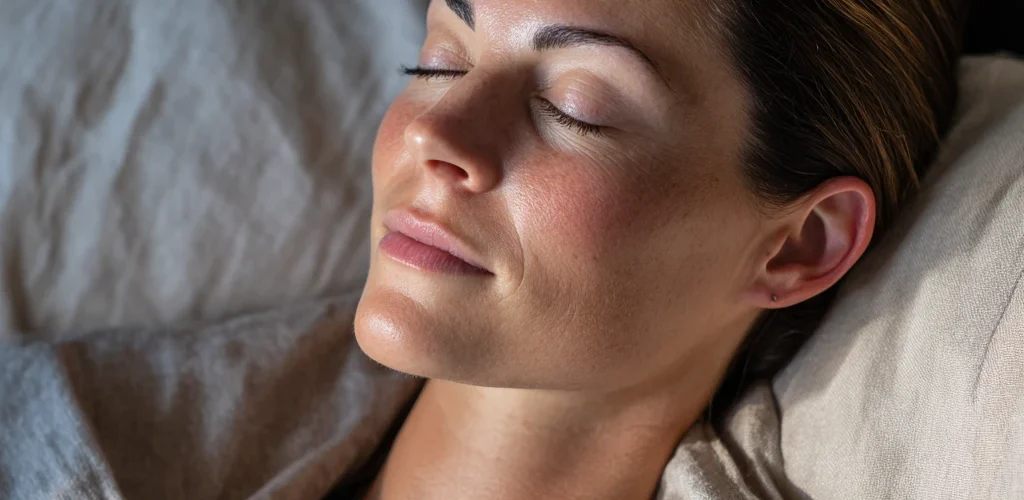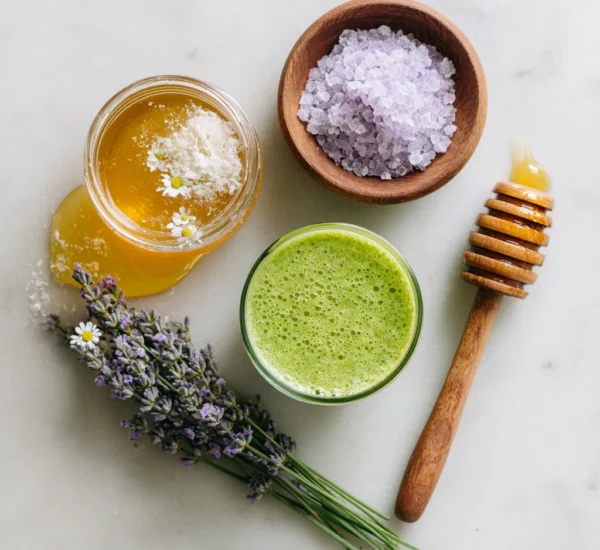Evening Practices to Unwind Fast: Your Guide to a Peaceful Night
In today’s fast-paced world, unwinding after a long day can feel like a monumental task. Stress, deadlines, and constant connectivity often follow us into the evening, making it difficult to relax and prepare for restful sleep. But carving out time for evening practices dedicated to relaxation is essential for both physical and mental well-being. This article provides a comprehensive guide to effective evening routines designed to help you unwind quickly and enjoy a more peaceful night.

Section 1: The Importance of Evening Unwinding
The importance of evening relaxation extends far beyond simply feeling calmer before bed. It plays a crucial role in our overall health and productivity. Failing to unwind properly can lead to a cascade of negative consequences, including sleep disturbances, increased stress levels, and even long-term health problems.
The Link Between Stress and Sleep
Stress and sleep are inextricably linked. When we’re stressed, our bodies release cortisol, the stress hormone. Elevated cortisol levels can disrupt our sleep cycle, making it difficult to fall asleep and stay asleep. Chronic stress can lead to insomnia and other sleep disorders, which, in turn, exacerbate feelings of anxiety and depression. By incorporating relaxation techniques into our evening routine, we can lower cortisol levels and improve the quality of our sleep.
Boosting Productivity Through Rest
Paradoxically, taking time to relax in the evening can actually boost productivity. When we’re well-rested, we’re more focused, alert, and creative. A good night’s sleep allows our brains to consolidate information and solve problems more effectively. By prioritizing evening relaxation, we’re investing in our ability to perform at our best during the day. Think of it as recharging your batteries so you can tackle the next day with renewed energy.
Long-Term Health Benefits
The benefits of consistent evening relaxation extend beyond sleep and productivity. Stress management is crucial for maintaining overall health and well-being. Chronic stress can contribute to a range of health problems, including high blood pressure, heart disease, and weakened immune function. By practicing relaxation techniques regularly, we can mitigate the negative effects of stress and improve our long-term health outcomes.
Section 2: Creating Your Ideal Unwinding Routine
Developing an effective evening routine is a highly personal process. What works for one person may not work for another. The key is to experiment with different techniques and find what resonates with you and fits seamlessly into your lifestyle.
Setting the Stage: Environment Matters
Your environment plays a significant role in your ability to relax. Create a calm and inviting space in your bedroom that promotes relaxation. Dim the lights, tidy up clutter, and consider using calming scents like lavender or chamomile. Make sure your bedroom is cool, dark, and quiet, as these conditions are ideal for sleep. Investing in comfortable bedding and blackout curtains can also significantly improve your sleep quality.
Digital Detox: Unplug to Unwind
One of the most crucial steps in unwinding is disconnecting from technology. The blue light emitted from screens can interfere with melatonin production, making it harder to fall asleep. Avoid using electronic devices at least an hour before bed. Instead, opt for relaxing activities like reading a book, listening to calming music, or taking a warm bath. Consider setting a digital curfew for yourself and sticking to it consistently.
Cultivating Mindfulness: Being Present
Mindfulness practices can be incredibly effective in reducing stress and promoting relaxation. Simple techniques like deep breathing exercises and meditation can help you calm your mind and focus on the present moment. There are many guided meditation apps available that can guide you through these practices. Even just a few minutes of mindfulness each evening can make a significant difference in your overall stress levels.
Section 3: Effective Evening Practices
Now that we’ve discussed the importance of unwinding and creating a relaxing environment, let’s explore some specific evening practices you can incorporate into your routine.
Gentle Exercise: Moving Your Body
While intense workouts close to bedtime can be stimulating, gentle exercise can actually promote relaxation. Consider activities like yoga, stretching, or a leisurely walk. These activities can help release tension in your muscles and calm your mind. Focus on slow, deliberate movements and deep breathing to maximize the relaxing effects. Avoid strenuous exercise at least two hours before bed.
Warm Baths or Showers: Soothing the Senses
A warm bath or shower can be incredibly soothing and relaxing. The warm water helps to relax your muscles and lower your body temperature, which signals to your brain that it’s time to sleep. Add Epsom salts to your bath for extra muscle relaxation. Consider using aromatherapy oils like lavender or chamomile to enhance the calming effects. Make the experience even more enjoyable by lighting candles and playing relaxing music.
Reading: Escaping into a Good Book
Reading is a wonderful way to escape from the stresses of the day and relax your mind. Choose a book that you find enjoyable and engaging, but avoid anything that is too stimulating or suspenseful. Reading helps to take your mind off your worries and focus on something else. Consider reading a physical book rather than an e-reader to avoid the blue light emitted from screens.
Journaling: Processing Your Thoughts
Journaling is a powerful tool for processing your thoughts and emotions. Take some time each evening to write down your thoughts, feelings, and experiences from the day. This can help you to release any pent-up emotions and gain clarity on your thoughts. You can write about anything that comes to mind, or you can use prompts to guide your writing. Journaling can be a very therapeutic and cathartic experience.
Herbal Teas: Natural Relaxation
Certain herbal teas have calming properties that can help you relax and prepare for sleep. Chamomile tea, lavender tea, and valerian root tea are all known for their relaxing effects. These teas contain compounds that can help to reduce anxiety and promote sleep. Avoid caffeinated beverages in the evening, as they can interfere with your sleep.
Section 4: Troubleshooting Common Unwinding Challenges
Even with the best intentions, unwinding can be challenging at times. Here are some common challenges and how to overcome them.
Racing Thoughts: Quieting the Mind
Racing thoughts are a common obstacle to relaxation. When your mind is constantly racing, it can be difficult to calm down and fall asleep. Try using mindfulness techniques like deep breathing or meditation to quiet your mind. You can also try writing down your thoughts in a journal to get them out of your head. If your racing thoughts are persistent, consider talking to a therapist or counselor.
Stress and Anxiety: Managing Emotions
Stress and anxiety can make it difficult to relax and unwind. Identify the sources of your stress and try to address them directly. Practice stress-management techniques like yoga, meditation, or spending time in nature. Talk to a trusted friend or family member about your concerns. If your stress and anxiety are overwhelming, seek professional help.
Inconsistent Sleep Schedule: Establishing a Rhythm
An inconsistent sleep schedule can disrupt your body’s natural sleep-wake cycle. Try to go to bed and wake up at the same time each day, even on weekends. This will help to regulate your body’s internal clock and improve your sleep quality. Avoid napping during the day, as this can make it harder to fall asleep at night.
Environmental Distractions: Creating a Sanctuary
Environmental distractions like noise, light, and temperature can interfere with your ability to relax and sleep. Create a calm and inviting space in your bedroom that promotes relaxation. Use blackout curtains to block out light, earplugs to block out noise, and adjust the temperature to a comfortable level. Make sure your bed is comfortable and supportive.
Late-Night Eating: Digestion Woes
Eating a large meal close to bedtime can interfere with your sleep. Your body needs time to digest the food, which can keep you awake. Avoid eating heavy meals at least three hours before bed. If you’re hungry, opt for a light snack like a piece of fruit or a handful of nuts.
Section 5: Building a Sustainable Evening Routine
The key to successful unwinding is consistency. Here’s how to create a sustainable evening routine that you can stick to in the long term.
Start Small: Baby Steps to Success
Don’t try to overhaul your entire evening routine overnight. Start by incorporating one or two new practices at a time and gradually build from there. This will make the process less overwhelming and more sustainable. Choose practices that you enjoy and that fit easily into your lifestyle.
Be Consistent: Habits Over Time
Consistency is key to reaping the benefits of evening relaxation. Try to follow your routine as consistently as possible, even on weekends. This will help to establish a rhythm and signal to your body that it’s time to relax and prepare for sleep.
Be Flexible: Adjust as Needed
Life is unpredictable, and there will be times when you can’t follow your routine perfectly. Don’t get discouraged. Simply adjust your routine as needed and get back on track as soon as possible. The goal is to create a routine that works for you, not to follow a rigid set of rules.
Track Your Progress: Monitor Success
Tracking your progress can help you stay motivated and see the benefits of your evening routine. Keep a journal or use a tracking app to monitor your sleep quality, stress levels, and overall well-being. This will help you to identify what’s working and what’s not, and make adjustments as needed.
Reward Yourself: Positive Reinforcement
Reward yourself for sticking to your evening routine. This could be anything from treating yourself to a relaxing massage to buying a new book. Positive reinforcement can help you stay motivated and make your routine more enjoyable.

FAQ
Q: How long before bed should I start my unwinding routine?
A: Aim to start your unwinding routine at least 1-2 hours before your desired bedtime. This allows your body and mind sufficient time to transition into a state of relaxation.
Q: What if I fall asleep during my unwinding routine?
A: If you fall asleep during your routine, that’s perfectly fine! It simply means your body is ready for rest. Just make sure any open flames (candles) are extinguished and you’re in a safe sleeping position.
Q: Can I watch TV as part of my unwinding routine?
A: It’s generally best to avoid screen time close to bed. If you do watch TV, choose something light and relaxing, and avoid action-packed or suspenseful shows. Keep the lights dim and the volume low.
Q: What if I can't seem to stop thinking about work?
A: Try writing down your work-related thoughts and to-do’s in a journal. This can help to get them out of your head and onto paper. You can also set a specific time each day to address work-related issues and then try to disconnect from work during your evening routine.
Q: Is it okay to have a glass of wine to relax?
A: While alcohol may initially make you feel relaxed, it can disrupt your sleep later in the night. It’s generally best to avoid alcohol close to bedtime. If you do choose to drink, limit yourself to one drink and consume it several hours before bed.



